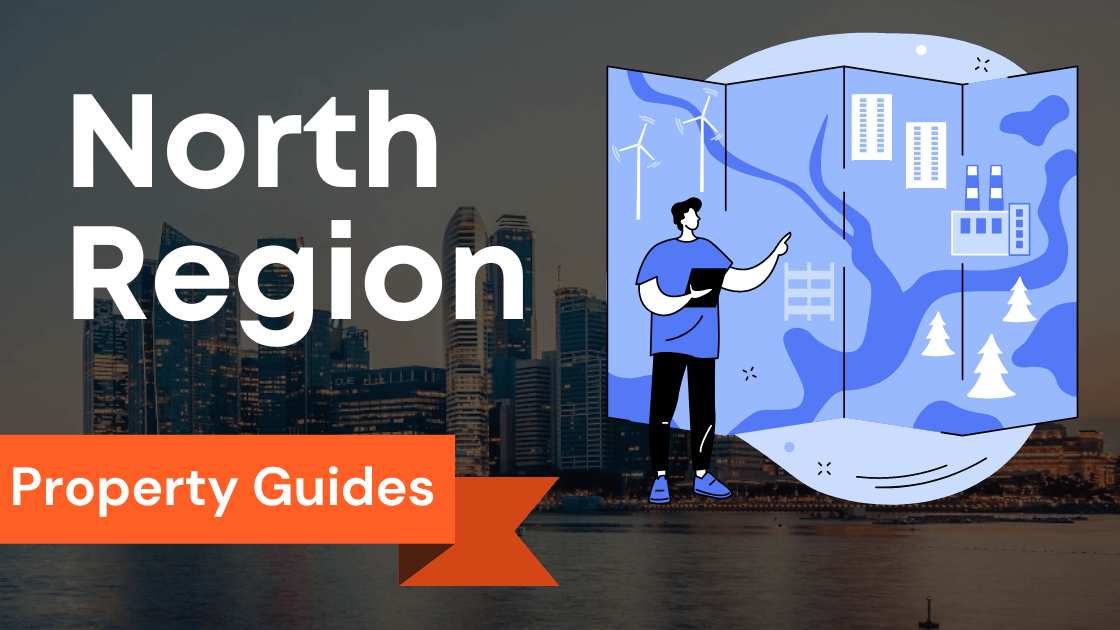
Are you considering renting a condo in Singapore?
With its vibrant city life, modern amenities, and diverse culture, Singapore offers a great place to live.
But before you dive into the rental market, it’s essential to understand the process and benefits of renting a condo.
Benefits of renting a condo in Singapore
Renting a condo in Singapore comes with several advantages:
- Access to top-notch facilities: Condos often provide residents with amenities like swimming pools, gyms, and 24-hour security. These facilities can enhance your quality of life and make your stay more enjoyable.
- Prime locations: Many condos are strategically located in desirable neighborhoods, close to schools, shopping centers, and public transportation. This means you can enjoy convenience and easy access to everything Singapore offers.
- Maintenance taken care of: When you rent a condo, the responsibility for maintenance and repairs typically falls on the landlord or management company. This saves you time and effort compared to owning a property.
Overview of the rental process
Before renting a condo in Singapore, it’s essential to familiarize yourself with the rental process:
- Rental rates: Research current rental prices in your desired area to understand the market rates.
- Tenancy agreement: Once you find a suitable condo, you must sign a contract outlining the lease terms and conditions.
- Security deposit: Prepare a security deposit, usually equivalent to one or two months’ rent, which will be refunded at the end of your tenancy period.
- Property viewing: Schedule a viewing to inspect the condo and ensure it meets your requirements.
- Application process: Submit the necessary documents, such as identification and income proof, to the landlord or agent.
Renting a condo in Singapore can be an exciting and rewarding experience.
By understanding the benefits and rental process, you’ll be well-equipped to find the perfect condo that suits your needs and lifestyle.
Key Takeaways
- Benefits of Renting a Condo:
- Access to top-notch facilities: Enjoy amenities like pools, gyms, security for a better quality of life.
- Prime locations: Convenient access to schools, shopping, public transport in desirable neighborhoods.
- Maintenance taken care of: Landlord/management handles repairs, saving time compared to ownership.
- Overview of Rental Process:
- Research rental rates in desired area to understand market rates.
- Sign a tenancy agreement outlining lease terms upon finding suitable condo.
- Prepare security deposit (1-2 months’ rent) for refund at end of tenancy.
- Inspect property during viewing to ensure it meets requirements.
- Submit required documents for application to landlord or agent.
- Finding the Right Condo:
- Research options based on location, size, amenities, and budget.
- Consider property type (high-rise, low-rise) based on preference.
- Factors to consider: lease duration, property type, location, convenience, district.
- Understanding Rental Costs:
- Rental rates vary by location, size, and amenities.
- Additional costs include maintenance fees, utilities, furniture.
- Good faith deposit required, along with Letter of Intent (LOI).
- Negotiating Tenancy Agreement:
- Understand key terms: Agreement, lease details, provision of furniture, rental contract.
- Familiarize with tenant rights, responsibilities, and obligations.
- Decide between private property and condo based on preferences.
- Preparing for Move-in:
- Thoroughly inspect condo unit before signing lease agreement.
- Set up utilities and services such as electricity, water, internet.
- Familiarize with condo rules and regulations for common area usage.
- Living in a Condo: Amenities and Facilities:
- Explore amenities provided by condo developments, like pools, gyms.
- Understand rules and etiquette for using common areas.
- Respect condo rules to maintain a harmonious living environment.
- Dealing with Landlords and Property Management:
- Know who to contact for communication: property owner or manager.
- Maintain clear, documented communication.
- Handle maintenance and repair issues promptly.
- Renting Near MRT Stations: Pros and Cons:
- Living near MRT stations offers commuting convenience.
- Easy access to amenities, services, potentially enhancing property value.
- Consider property type, city core vs. city fringe, transport availability.
Finding the Right Condo to Rent
Finding the perfect condo to rent in Singapore can be exciting yet daunting.
With so many options available, it’s essential to thoroughly research and consider various factors before deciding.
Here are some key points to keep in mind:
Researching different condo options
Start by exploring different condo options through property listings and portals.
Look for condos that meet your specific requirements, such as location, size, amenities, and budget.
Please use property viewings to understand the unit and its surroundings better.
Consider the type of property that suits your needs: a high-rise condominium or a low-rise apartment.
Factors to consider when choosing a condo
When choosing a condo, consider factors such as lease duration, property type (leasehold or freehold), location within the city, convenience of amenities and transportation, and the district it is located in.
Think about the specific features you desire in a condo unit, such as the number of bedrooms and bathrooms, balcony space, or access to recreational facilities.
Private property or condo: Pros and cons
Decide whether you prefer renting a private property or a condo.
Private properties offer more privacy and freedom but may have higher rental costs.
Conversely, condos often provide added security and amenities but may have stricter rules and regulations.
Consider the pros and cons of each option based on your preferences and lifestyle.
By thoroughly researching different condo options, considering important factors, and weighing the pros and cons of private properties versus condos, you can find the perfect rental condo in Singapore that meets your needs and preferences.
Understanding Rental Costs and Financial Considerations

When renting a condo in Singapore, it’s essential to understand the financial aspects.
Here are some key points to consider:
Average rental rates in Singapore
Rental rates in Singapore can vary depending on location, size, and amenities.
On average, a one-bedroom condo can cost around SGD 2,500 to SGD 3,500 per month in 2022, while a three-bedroom condo can range from SGD 4,000 to SGD 7,000 monthly.
Researching and comparing rental rates in different areas is essential to find the best deal for your budget.
Additional costs to consider
In addition to the monthly rental fee, there are other costs to consider when renting a condo.
These include maintenance fees, utilities such as water and electricity bills, and additional furniture or appliances you may need to purchase.
Some condos also charge fees for convenience facilities like swimming pools or gyms.
Investigating these additional costs is crucial when budgeting for your property rental expenses.
Good faith deposit and letter of intent
When renting a condo in Singapore, landlords typically require a good faith deposit as security.
This deposit is usually equivalent to one month’s rent and will be returned at the end of the lease period if there are no damages or outstanding payments.
Additionally, tenants are often required to submit a Letter of Intent (LOI) stating their intention to rent the property and outlining the terms and conditions of the lease.
By understanding these rental costs and financial considerations, you can make informed decisions when renting a condo in Singapore.
Negotiating the Tenancy Agreement

When renting a condo in Singapore, it is essential to understand the key terms and clauses in the tenancy agreement and your rights and responsibilities as a tenant.
This will help you navigate the rental process smoothly and ensure a positive renting experience.
Key terms and clauses in a tenancy agreement
The tenancy agreement is a legally binding document outlining your rental arrangement’s terms and conditions.
Here are some keywords and clauses you should be familiar with:
- Agreement refers to the contract between the landlord and the tenant.
- Lease details: This includes information such as the duration of the lease, rental amount, payment terms, and any additional fees.
- Provision of furniture: The tenancy agreement should specify whether the condo will be furnished or unfurnished.
- Rental contract: This outlines the obligations of both parties, including maintenance responsibilities, utility payments, and any restrictions on usage.
Understanding your rights and responsibilities as a tenant
As a tenant, it is crucial to understand your rights and responsibilities to protect yourself during the rental period.
Here are some key points to consider:
- Minimum lease term: The tenancy agreement should specify the minimum lease period required by law.
- Tenant rights: Familiarize yourself with your rights as a tenant, such as privacy, peaceful enjoyment of the premises, and protection against unfair eviction.
- Tenant renting process without engaging an agent: If you choose to rent without hiring an agent, ensure that you fully understand the terms of the tenancy agreement before signing.
- Tenant liability: Be aware of your responsibilities as a tenant, including maintaining cleanliness, paying rent on time, and reporting any damages or repairs needed.
By understanding these key terms and clauses in a tenancy agreement and your rights and responsibilities as a tenant, you can negotiate a fair and favorable rental arrangement in Singapore.
Preparing for the Move-in Process

When renting a condo in Singapore, there are a few essential steps to take before moving in.
By following these guidelines, you can ensure a smooth transition into your new home.
Inspecting the condo unit before moving in
Before signing the lease agreement, inspecting the condo unit thoroughly is crucial.
Take note of any damages or issues and inform the landlord or property manager.
Additionally, check if all necessary inventory items, such as furniture and appliances, are provided.
Remember to collect the keys to your rental unit as well.
Setting up utilities and services
Once you’ve moved in, you must set up utilities and services for your condo unit.
This includes activating electricity, water, internet, renting your own place, and cable TV connections.
Contact the respective service providers and provide them with the necessary information.
Familiarize yourself with the essential utilities available in your condo and explore any additional services or facilities.
Familiarizing yourself with the condo rules and regulations
Each condo has its own set of rules and regulations that residents must adhere to.
Take the time to read through these insightful guide to avoid any misunderstandings or violations.
Familiarize yourself with important information such as noise restrictions, pet policies, and common area usage rules.
Contact the property manager for clarification if you have any questions or concerns.
By preparing for the move-in process in advance, you can ensure a seamless transition into your new condo in Singapore.
Take the time to inspect the unit, set up utilities, and familiarize yourself with the condo rules and regulations for a stress-free living experience.
Living in a Condo: Amenities and Facilities

A condo offers a unique lifestyle with access to various amenities and facilities.
Understanding the rules and etiquette for using these common areas is essential to ensure a harmonious living environment.
Exploring the amenities offered by condo developments
Condo developments often provide a wide range of amenities and facilities for residents.
These include swimming pools, gyms, tennis courts, BBQ pits, playgrounds, and more.
Part of Renting a property in a condo allows you to take advantage of these amenities without additional memberships or fees.
The 24-hour security provided by most condos ensures that residents can enjoy these facilities safely.
Understanding the rules and etiquette for using common areas
When living in a condo, you must familiarize yourself with the rules and etiquette for using common areas.
Each apartment may have its rules and regulations governing the use of facilities such as swimming pools or gymnasiums.
Respecting these rules to maintain a pleasant living environment for all residents is crucial.
Standard etiquette includes:
- Cleaning up after yourself.
- Being mindful of noise levels.
- Following any booking procedures for shared spaces.
Living in a condo provides access to various amenities and facilities that can enhance your quality of life.
Understanding and adhering to the rules and etiquette for using these common areas can ensure a positive living experience in your rental property.
Dealing with Landlords and Property Management

Communicating with your landlord or property management
When renting a condo in Singapore, it’s essential to establish good communication with your landlord or property management.
Here are some tips to help you navigate this aspect of renting:
- Know who to contact: Understand whether you should communicate with the property owner directly or through a property manager. This will ensure that the right person addresses your queries and concerns.
- Be clear and concise: When reaching out to your landlord or property management, be specific about your issue or question. Provide all necessary details to help them understand the situation better.
- Keep a record: Maintain a record of all communication with your landlord or property management. This can include emails, text messages, or any other form of correspondence. It will be helpful in case any disputes arise in the future.
Handling maintenance and repair issues
Maintenance and repair issues are common when renting a condo.
Here’s how you can effectively handle them:
- Know your responsibilities: Familiarize yourself with the terms of your lease agreement regarding maintenance and repairs. Understand what issues are your responsibility and what falls under the landlord’s responsibility.
- Report issues promptly: If you encounter any maintenance or repair issues, inform your landlord or property management as soon as possible. Provide precise details and, if necessary, document the problem with photos.
- Follow up: If the issue still needs to be resolved promptly, politely follow up with your landlord or property management. Communication is critical to ensuring that necessary repairs are carried out promptly.
By establishing good communication and knowing how to handle maintenance and repair issues, you can have a smooth renting experience in Singapore.
Renting Near MRT Stations: Pros and Cons

Benefits of living near MRT stations in Singapore
Living near MRT stations in Singapore offers several advantages for renters.
Firstly, it provides easy access to public transportation, making commuting a breeze.
Whether you need to travel to the city core or the city fringe, having an MRT station nearby ensures convenience and saves time.
Additionally, living near an MRT station means being close to various amenities and services.
You’ll easily access shopping malls, restaurants, schools, and healthcare facilities.
This proximity can enhance your quality of life and make daily errands more convenient.
Furthermore, renting near an MRT station can be beneficial regarding property value.
Locations near MRT stations have higher demand, potentially leading to better rental yields and property appreciation.
Considerations when choosing a location based on proximity to MRT stations
When selecting a rental property based on its proximity to an MRT station, there are a few factors to consider.
Firstly, determine your preferred property type, whether a condo or a different rental property.
Next, consider whether you prefer living in the city core or fringe.
The city core offers proximity to business districts and entertainment hubs, while the city fringe provides a quieter residential environment.
Additionally, assess the availability of transport services near the MRT station.
Check if there are bus stops or other modes of transportation that can complement your daily commute.
Lastly, consider seeking assistance from a reliable property agent specializing in rentals near MRT stations.
They can provide valuable insights and help you find the perfect rental property that meets your needs and preferences in Singapore.
By carefully weighing these considerations, you can make an informed decision when renting near MRT stations in Singapore.
Summary
Looking to rent a condo in Singapore?
This ultimate guide comprehensively summarizes the key points you need to know before embarking on your rental journey.
From finding the perfect place to understanding rental costs and agreements, this summary will help you quickly navigate the process.
If you’re searching for a place to call home in Singapore, rent a condo room can be a great option.
Whether you’re planning to rent out your private property or looking for condos in Singapore, there are a few essential factors to consider.
Firstly, it’s essential to understand the costs associated with renting.
In Singapore, landlords typically require tenants to pay a security deposit equivalent to one month’s rent and an additional one or two months’ rent as an advance payment.
When you sign the lease agreement, you must be prepared to pay the first month’s rental and the security deposit upfront.
When searching for a condo to rent, focusing on rental units that meet your specific needs is essential.
Consider location, size, amenities, and proximity to public transportation or schools.
Also, be aware that rental prices are always negotiable, so don’t hesitate to contact the landlord or agent.
Once you’ve found a suitable condo, you must go through the necessary paperwork and legal processes.
This includes signing a Letter of Intent (LOI) with a good faith deposit, which outlines the terms and conditions of the rental agreement.
Reviewing the LOI and seeking legal advice, if needed carefully, is essential.
Before moving into the rented condo, stamp duty, hdb flat, conduct a thorough inspection of the unit and note any existing damages or issues.
This will help protect your security deposit when it’s time to move out.
Lastly, remember that as a tenant, you have specific responsibilities.
Be a good neighbor, respect the condo facilities, and adhere to management’s rules or regulations.
Communication with your landlord regarding any maintenance or repair issues during your tenancy is essential.
Renting a condo in Singapore can be an exciting and rewarding experience.
By following these steps and being well-informed, you can ensure a smooth and enjoyable rental journey.
Frequently Asked Questions
What is a condo rental?
A condo rental refers to renting out a condominium unit, typically for a certain period.
How much does it cost to rent a condo in Singapore?
The cost to rent a condo in Singapore varies depending on location, size, and amenities.
It is advisable to research the rental rates in the specific area you are interested in.
What is a good faith deposit in condo rental?
A good faith deposit, or an earnest deposit, is a sum of money a potential tenant pays to show their sincere intention to rent the condo unit.
It is usually a small percentage of the total rental amount.
What does LOI stand for in the rental process?
LOI stands for Letter of Intent.
It is a document that expresses the tenant’s interest in renting a condo unit and outlines the terms and conditions of the rental agreement.
What is a condo unit?
A condo unit is a living space within a condominium building.
It typically includes rooms, a kitchen, and a bathroom.
Who is considered a tenant in a condo rental?
In a condo rental, the tenant is the individual who pays rent to the landlord or the owner of the condo unit in exchange for the right to occupy and use the premises.
Are the rental rates for hdb condos in Singapore fixed?
No, the rental rates for condos in Singapore can vary depending on the demand and supply in the rental market.
It is advisable to research the rental rates in the specific area you are interested in.
What is the rental guide for private property or condos rent in Singapore?
The rental guide for private property or condos in Singapore provides information on the rental process, legal requirements, and tips for tenants and landlords.
What is a letter of intent in the rental process?
In the rental process, a letter of intent is a document that expresses the tenant’s interest in renting a particular property and outlines the terms and conditions of the rental agreement.
What is the process of renting a condo in Singapore?
Renting a condo in Singapore typically involves searching for a suitable unit, viewing the property, submitting a letter of intent, negotiating the terms, signing the tenancy agreement, and paying the necessary fees and deposits.












